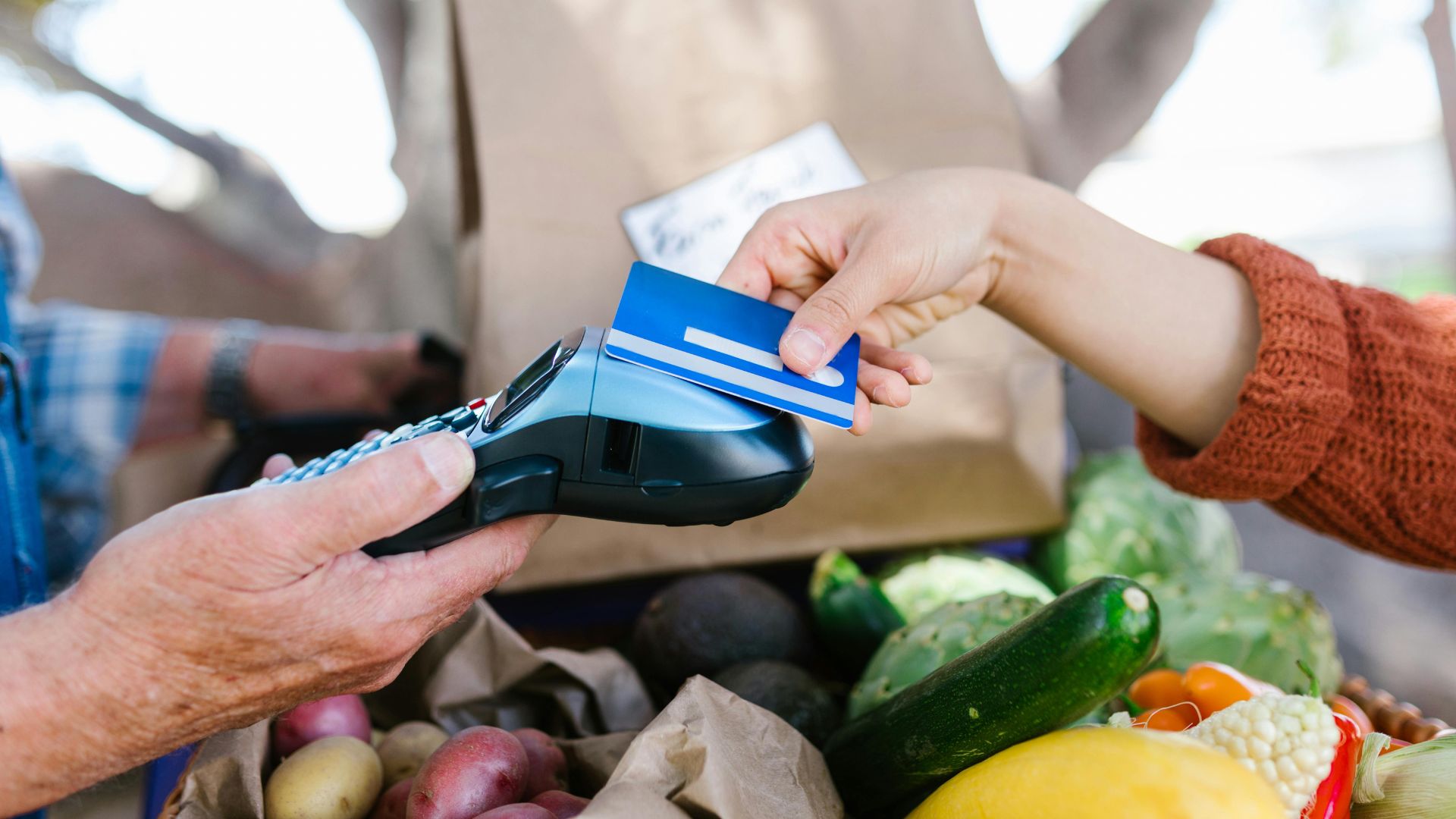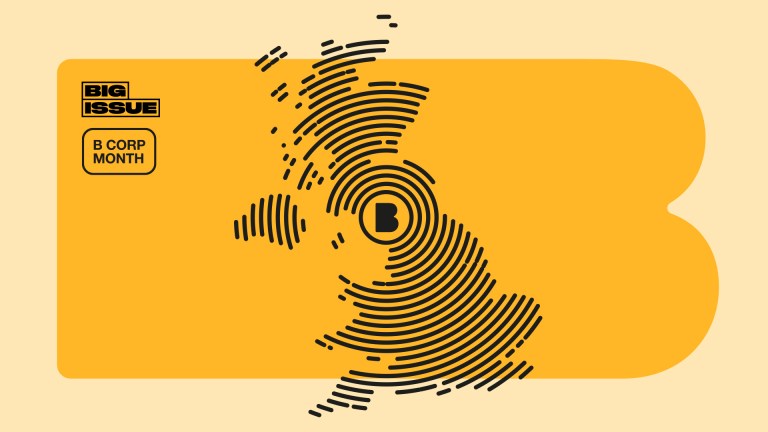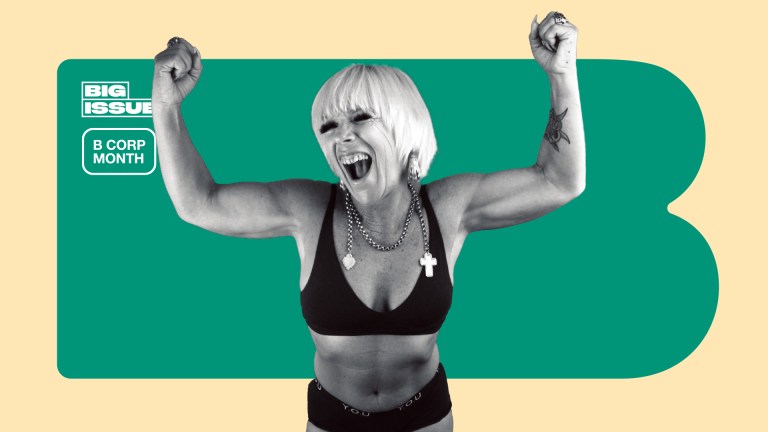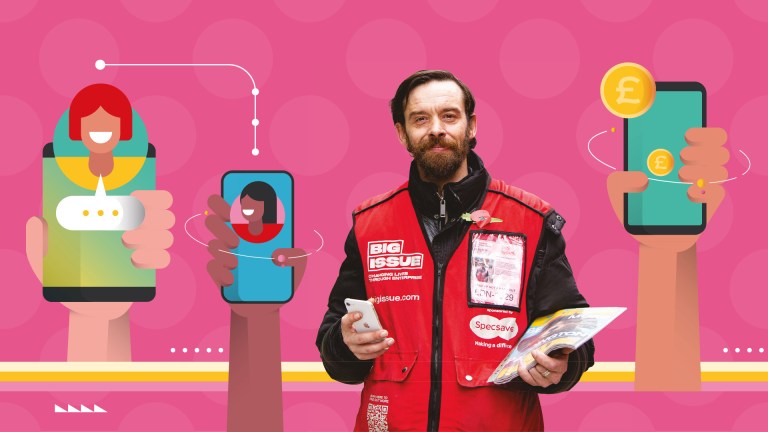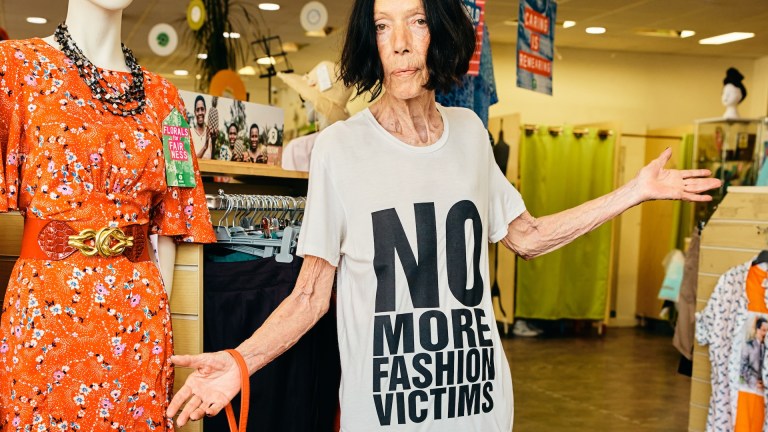“It can feel a bit daunting at first because there is a lot to know and there is a lot of disinformation, such as greenwashing, disseminated by big business,” Crumbie explained.
“That is where Ethical Consumer comes in. We’ve been researching and writing about these issues for over 30 years, so we know what we are talking about, and we’re independent so you know you can trust our research.”
Crumbie added that “learning about what the key issues are in a particular sector” can help you to buy in line with your values – whether you’re interested in human rights, the environment, or animal welfare.
“For example, one of the most important issues related to clothing and fashion is the low pay and poor working conditions faced by many of the people that actually make the clothes we buy. You can help by supporting brands that uphold workers’ rights in their supply chains and pay a living wage, as well as supporting groups (such as Fashion Revolution) that campaign for systemic change,” he explained.
A first step could be making a list of causes you care about, and researching brands or products that align with those values; for example if you care about animal welfare, searching for products not tested on animals may be worthwhile.
How can I tell if a brand is ethical?
In many cases, you can tell if certain brands align with your values by labels they may have on their packaging.
Advertising helps fund Big Issue’s mission to end poverty
For example, if you value animal welfare, look out for a “cruelty-free” label on a product. Cruelty Free International has an index where you can look up which products are certified under its scheme, also known as the “leaping bunny” label.
If you want to ensure your products are environmentally friendly, Eco Label Index has a guide to which labels mean what for the environment; popular labels you may see in the UK include the Forest Stewardship Council label or the Carbon Trust label.
Many other products, like food and drink, may have the Fairtrade label, which indicates a product reaches a certain standard of fairer pay and working conditions.
A Fairtrade spokesperson told the Big Issue that polling in 2024 found seven in 10 UK adults (69%) bought a Fairtrade product over the last year, with bananas and chocolate the most popular Fairtrade products.
“Consumers continue to buy ethical products despite the cost of living crisis – 43% of people prefer to purchase products labelled as Fairtrade over the closest alternative, when given the choice,” Fairtrade explained.
When making ethical choices, the company added: “Consumers can also look for Fairtrade and ‘organic’ as this means producers get extra income they can invest back into their communities to help address challenges such as climate change.”
Advertising helps fund Big Issue’s mission to end poverty
Some companies are also certified “B Corps”, including the Big Issue, which means they have met standards of social and environmental performance, public transparency, and legal accountability to balance profit and purpose – which means they may be a more ethical choice than other brands.
B Corp companies, like Who Gives a Crap, Aesop or Innocent Drinks, may have a “B Corp” label on their packaging which shows the company has passed an assessment testing their social and environmental credentials, which they must re-certify every three years.
B Lab UK told the Big Issue: “People increasingly want to buy from, and work for, companies that positively impact people and the planet. Our 2023 brand survey showed that over half of UK adults use business certifications to decide about businesses to buy from and work for, and that 73% of people believe that ‘consumers can impact environmental sustainability through their purchases’.
It added: “Continuous improvement is a cornerstone of B Corp Certification. Under the new standards, B Corps must demonstrate improvement over time, including milestones after three and five years.
“B Corps do not claim to be perfect businesses – no business is – but by making a legal change and committing to transparency and continuous improvement, they are striving to redefine business norms.”
While the B Corp label isn’t everything, and it has been criticised in the past for not being rigorous enough, it, along with labels like Fairtrade or “cruelty-free” is one indication the product may be a more ethical choice than others.
Advertising helps fund Big Issue’s mission to end poverty
What about ethical finance and investing?
In terms of finance, Ethical Consumer’s Crumbie said one option could be switching your bank to a more ethical choice, which he said is “usually free, or can even earn you a few quid”.
While it’s important to consider a provider that can offer the most financially, experts say choosing a bank can involve considerations like ethics and sustainability. As well as a place to keep your money safe, a bank also leverages your money to make investments – and these investments could be in any number of industries, including arms, tobacco or fossil fuels.
Make My Money Matter found that since the Paris Agreement was signed in 2016, our five biggest high street banks have collectively funnelled $556 billion (£419bn) towards the fossil fuel sector.
The Make My Money Matter campaign has more information about how you can switch banks to a more sustainable choice, as well as how to explore your pension’s environmental credentials. Websites such as bank.green and Switch It Green can also help you find out how your bank is using your money, and how to switch.
In terms of investing, experts explain that making choices like talking to your employer about a greener pension can be a way of ensuring your investments meet your values. Pensionbee can also help you trace your old pension pots and reinvest them into a new fund, including fossil-fuel free choices.
The Big Issue has compiled some more information on ethical investing that could help you decide where to invest your money in order to make a positive impact on the planet.
Advertising helps fund Big Issue’s mission to end poverty
What are the most affordable ways to shop ethically?
Experts say shopping ethically, reducing your impact on the climate, and making sure your consumption reflects your personal values doesn’t have to be expensive – and it can be as easy as shopping second-hand.
Crumbie explained that sustainability can involve reducing waste from your consumption, for example buying one higher-quality item that lasts a long time, instead of buying several “fast-fashion” items that could wear out much quicker.
“We all buy things we don’t ‘need’, and to some extent that is OK – we want to enjoy life and buy things that bring us joy, as well as things we absolutely need to survive. The issue is that most of us are buying far too much,” he explained.
“Fast-fashion is a prime example… The creation of most clothing has big environmental and social impacts – the more new clothes are bought the more harm is done. The other side of this is that fast-fashion is usually of very poor quality, so even if you wanted to wear it for years, it will probably break after a few months.
“We recommend people buy better quality items (ideally second-hand) that may cost more initially, but will probably save money in the longer term as they last longer.”
Sustainable fashion directory Good On You explained in its guide that buying clothing made from natural materials, like cotton and linen, can be more sustainable than synthetic materials, and can be better for your budget in the long run, as some fast-fashion is “designed to be worn only a few times before falling apart”.
Advertising helps fund Big Issue’s mission to end poverty
If you’re new to sustainable shopping, Oxfam has a guide with tips on how to look for eco-friendly and second-hand goods.
“Other options are often cheaper than the norm. For example, eating less meat. Or buying second-hand clothes. Or switching your bank to a more ethical one,” Crumbie added. “Consuming less is a vital part of ethical consumption, which should save you money.”
“You have to find the choices that are right for your budget, but usually there are lots of ethical choices that might even save you money. Get informed about what choices have an impact and do what you can.”
Do you have a story to tell or opinions to share about this? Get in touch and tell us more. Big Issue exists to give homeless and marginalised people the opportunity to earn an income. To support our work buy a copy of the magazine or get the app from the App Store or Google Play.
